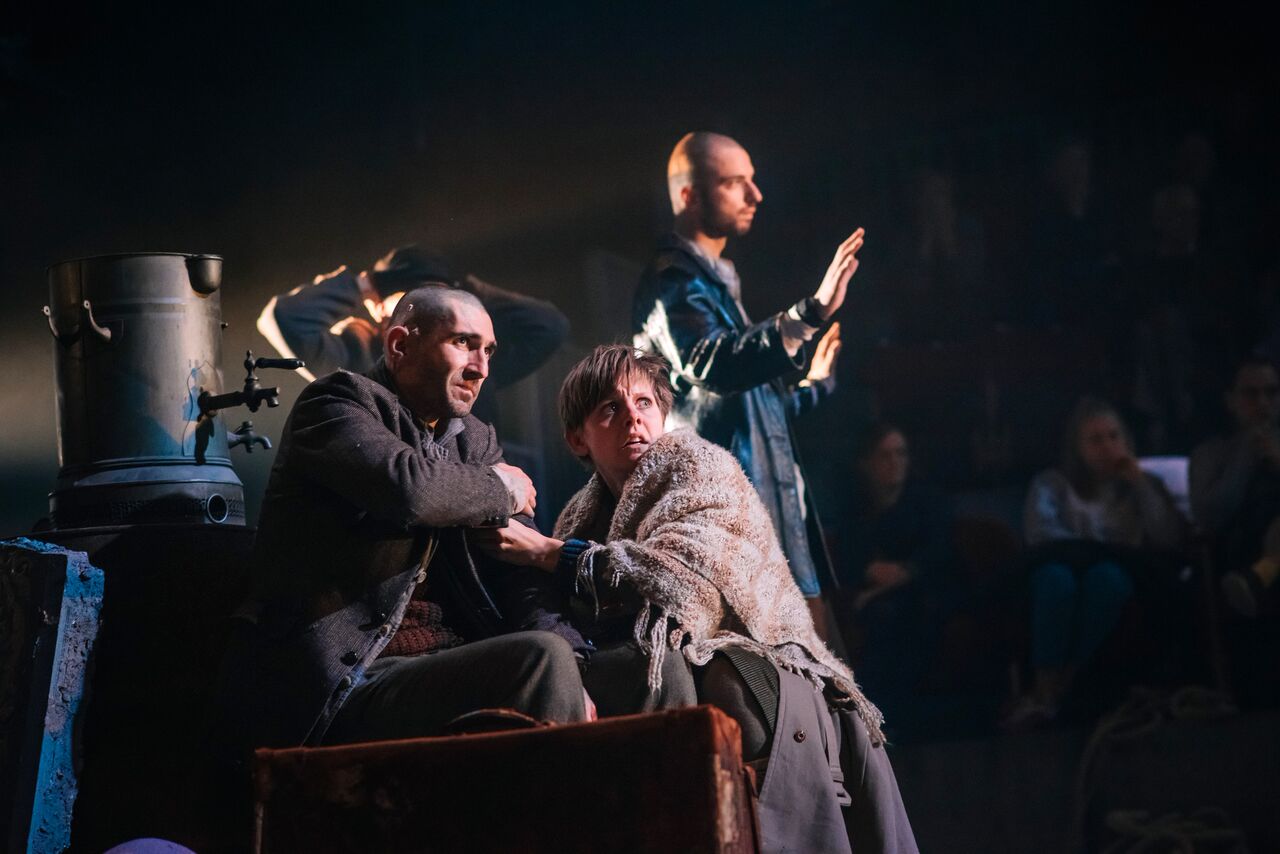First performed in 1948, this play could hardly be more topical. Two British officers are despatched to a provincial German theatre to co-ordinate the relocation efforts of “displaced persons” from across Europe in the aftermath of the Second World War. They don’t have enough food. They don’t have enough vehicles to get the refugees anywhere close to home. Captain Ridley hopes that the operation will be policed by good manners, though he’s soon buckling his gun back onto his waist as the refugees bicker over who most deserves a ticket home.
In a week where Brexit negotiations are faltering and Catalans dither over their long fought for independence, Cockpit is disturbingly prescient. The UN announced last year that there are now more refugees in the world than in the aftermath of the Second World War. One in every 113 people on the planet is “displaced”. The refugee council chief denounced the worrying “climate of xenophobia” sweeping Europe as governments try to pick up the pieces. And when people are scared, they’re quick to panic and quick to look for scapegoats.
Ana Inés Jabares-Pita’s set spills out from the stage, strewing the balconies with banners painted with political slogans. Ladders snake from the auditorium floor up to the dress circle and actors appear and disappear through the rarely used, picture-perfect boxes. On stage, a suspended walkway, relics of previous show sets and a further bank of audience seats help to reinforce the idea that our silence makes us complicit in the humanitarian chaos.
Bridget Boland, writing in 1947, created an ahead of her time piece of site specific theatre, written to be performed in a theatre and casting the audience as the seething mass of self-absorbed humanity, forced into a situation where they must find a way to get along. Her vision is unnerving. “Belief is dangerous”, concludes Captain Ridley as another fight is averted, a thought uncomfortably resonant today.
This is a classy production from director Wils Wilson. It looks great. She uses this beautiful theatre space brilliantly to ensure that, true to the concept, the audience are placed right in the middle of the action. Kai Fischer does his usual brilliant job of lighting without the audience even realising we’re being told where to look. Aly Macrae’s haunting music locates us neatly in post-war Europe. Vicki Manderson’s movement helps with the storytelling, reinforcing the idea of the prejudices that get in the way of our attempts to be understood.
Peter Hannah as the firm but trying to be fair Captain Ridley has a tough gig. He treads a nicely controlled line between a desperate faith in order and a rising sense of panic as he realises that life isn’t like the army and won’t always obey an efficiently delivered command. Alexandra Mathie gives an impressive performance as the apparently opinionated but hopelessly out of her depth Polish intellectual flung into the real world with all its attendant mess. And Kaisa Hammarlund, cellist turned French Resistance, is a ray of elegantly boisterous optimism in amongst the dreary defeat, though even she is forced to confront the idea that courage doesn’t solve everything.
A few practical problems will undoubtedly be ironed out beyond the opening night. Staging the show in the round means audibility is occasionally an issue. And this beautiful old building’s creaking hinges mean that lines are sometimes lost – but this will likely sort itself out once the actors are accustomed to the space.
Probably the trickiest thing for today’s audiences to stomach in this production is the somewhat didactic nature of the script. Themes hung heavier in 1948 than they might in a script written today. The tension is raised as the characters limp towards a long-sought resolution through a succession of increasingly far-fetched revelations. The actors make the reveals as believable as they can, but it’s hard to avoid the faint whiff of melodrama on occasion. The stage manager character, like most of the script of Legally Blonde, feels like the sort of cheap parody that should be allowed to die quietly – or else be reinvented for an age where stereotypes are not the easy source of humour that they might have been in the past.
Given the script, it’s hard for the actors to find the depth and complexity that we’ve been spoilt with in much contemporary theatre. So whilst you might be appalled at their plight by the end of the play, it’s difficult to feel much empathy and therefore much sympathy with these characters.
But seen instead as a timely revival of a wise-before-its-time script that sheds light on why today’s world needs such reserves of compassion, it’s a thoughtful, visually stunning production. And the pitch for the role of the arts in the second act feels like it comes straight from Artistic Director David Greig’s heart.
